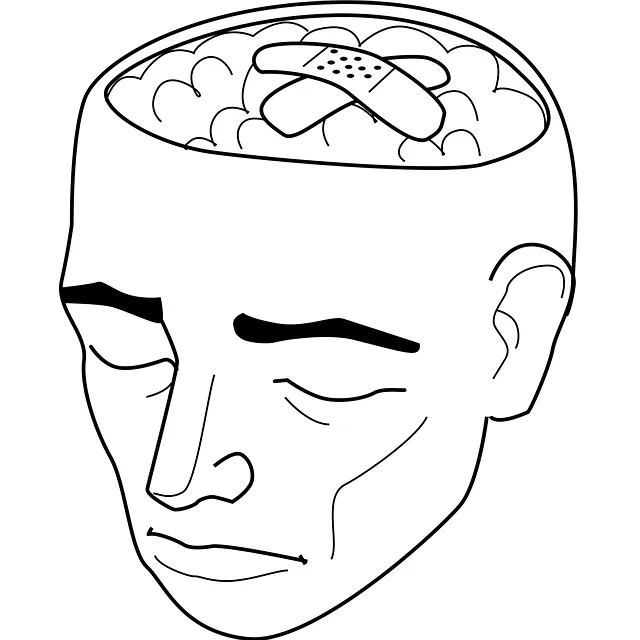Mental wellness groups at Lakewood Kaiser Permanente, as supported by positive psychiatry reviews, offer a supportive community for individuals facing shared challenges. Through discussions, activities, and exercises, members gain solace from knowing they're not alone, build support networks, and learn about mental health and burnout prevention. Effective facilitation techniques, like active listening and open-ended questions, create a safe space encouraging open dialogue and trust. Interactive activities, such as icebreakers and guided meditations, foster emotional connections and teach coping strategies for stress management. Success is measured through improved mental health outcomes, with facilitators regularly reviewing feedback and adapting their approaches to ensure a safe, supportive environment.
Mental wellness groups offer a powerful support system, fostering recovery and resilience. This article explores effective facilitation techniques for such groups, drawing insights from Lakewood Kaiser Permanente psychiatry reviews. We delve into the benefits and dynamics of these collective settings, providing strategies to create safe spaces, engage participants through interactive activities, and measure group success. By mastering these techniques, facilitators can enhance mental wellness outcomes and revolutionize care.
- Understanding Mental Wellness Groups: Benefits and Dynamics
- Facilitation Techniques for Effective Group Sessions
- Creating a Safe and Supportive Environment
- Engaging Participants: Interactive Activities and Exercises
- Measuring Success: Assessment and Continual Improvement
Understanding Mental Wellness Groups: Benefits and Dynamics

Mental wellness groups offer a supportive environment where individuals with shared experiences or similar challenges can come together to connect, learn, and heal. These groups are facilitated by trained professionals, such as those at Lakewood Kaiser Permanente psychiatry, who guide participants through discussions, activities, and exercises aimed at enhancing mental health and well-being. One of the key benefits is the sense of community they foster; members find solace in knowing they’re not alone in their struggles, fostering a supportive network that can be invaluable in the emotional healing processes.
These groups also provide a platform for mental health education programs design, burnout prevention strategies for healthcare providers, and opportunities for personal growth. The dynamic nature of group interactions allows participants to learn from one another, gain new perspectives, and develop coping mechanisms tailored to their unique needs. This collaborative approach not only accelerates the healing process but also empowers individuals to take charge of their mental wellness in a safe and supportive setting.
Facilitation Techniques for Effective Group Sessions

Effective group facilitation is key to creating a safe and supportive space for individuals seeking mental wellness support. Techniques such as active listening, where facilitators demonstrate empathy and understanding, encourage participants to open up and share their experiences. This fosters a sense of community and trust, crucial for building meaningful connections and enhancing therapeutic outcomes, as noted in Lakewood Kaiser Permanente psychiatry reviews.
Moreover, utilizing communication strategies like open-ended questions prompts dialogue and promotes peer support. Facilitators should also promote active participation by creating structured yet flexible agendas that allow time for discussion, sharing, and skill-building activities related to stress management. Community outreach program implementation can further enrich these sessions by connecting participants with local resources and fostering a sense of belonging within the broader community.
Creating a Safe and Supportive Environment

Creating a safe and supportive environment is paramount to effective group facilitation, especially when addressing mental wellness issues. In the welcoming atmosphere of Lakewood Kaiser Permanente psychiatry reviews often highlight, facilitators play a crucial role in fostering open dialogue and building trust among participants. Techniques such as active listening, validating emotions, and ensuring confidentiality are essential tools for cultivating a non-judgmental space where individuals feel comfortable sharing their experiences and perspectives.
By incorporating conflict resolution techniques and mind over matter principles, facilitators can guide the group towards constructive interactions and personal growth. Moreover, regular risk assessments for mental health professionals help in identifying potential risks within the group dynamic, ensuring everyone’s safety while facilitating open exploration of sensitive topics. This holistic approach not only enhances the therapeutic experience but also aligns with best practices recommended by industry experts.
Engaging Participants: Interactive Activities and Exercises

Engaging participants actively is key to facilitating effective mental wellness groups. Interactive activities and exercises play a pivotal role in creating an inclusive environment that encourages open communication and fosters meaningful connections among group members. Techniques like icebreakers, guided meditations, and emotional check-ins help to build camaraderie and promote resilience building. By participating in these activities, individuals not only learn valuable coping strategies for stress management but also develop better emotional regulation skills, which are essential components of overall mental wellness.
In a setting like the one offered by Lakewood Kaiser Permanente psychiatry reviews, facilitators can leverage these interactive methods to create a supportive space where participants feel safe to express their experiences and learn from each other. Through dynamic exercises, group members can gain insights into their emotional responses, build coping mechanisms tailored to their unique needs, and ultimately enhance their ability to navigate life’s challenges with greater ease and resilience.
Measuring Success: Assessment and Continual Improvement

Measuring success in mental wellness group facilitation goes beyond simple attendance or engagement. It’s about assessing tangible improvements in participants’ well-being. This can be achieved through pre- and post-group assessments, using validated tools such as standardized questionnaires that gauge symptoms of anxiety, depression, stress, and mindfulness levels. At Lakewood Kaiser Permanente, psychiatry reviews often highlight these assessment results, demonstrating the impact of group facilitation techniques on mental health outcomes.
Continual improvement is a key aspect of successful group facilitation. Facilitators should regularly review feedback from participants, observe group dynamics, and adapt their approaches accordingly. Incorporating mindfulness meditation exercises and burnout prevention strategies for healthcare providers can enhance these sessions, fostering a safe and supportive environment where individuals feel empowered to manage their mental health effectively.
Mental wellness group facilitation plays a pivotal role in enhancing individuals’ well-being, as evidenced by favorable Lakewood Kaiser Permanente psychiatry reviews. By implementing effective techniques, such as creating safe spaces, engaging participants through interactive activities, and continuously improving based on assessment, facilitators can foster supportive environments that promote healing and growth. These strategies not only benefit group members but also contribute to the overall success of mental wellness initiatives.






